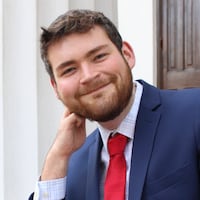Norcross officials will soon decide whether to become the next city in the metro Atlanta area to use a specialist to deescalate mental health crises.
Police Chief Bill Grogan pitched a plan to City Council during an October meeting that would let him add a licensed behavioral health clinician to the department. The clinician would respond with officers to service calls involving mental health crises and connect afflicted individuals with resources.
A trend in law enforcement is recognizing that officers are not suited to handle every task, Grogan said. “One of those is trying to figure out what need someone has who is struggling from a mental health crisis,” he said.
The proposal would cost the Gwinnett city about $62,000 per year, according to a presentation from Grogan. The clinician would be an employee from View Point Health, a mental health service provider based in Gwinnett County. City Council is set to vote on the plan on Nov. 1.
“We’re trying to be forward thinking in how we address people in our community and recognizing that mental health is a real thing,” said Councilmember Matt Myers.
The clinician would work 40 hours each week, Grogan said, with shifts scheduled to align with the peak hours for service calls related to mental health crises.
The city might hire additional clinicians based on the success of the program, Grogan said. About one out of every eight calls for service in Norcross involve mental health crises, he said.
“It’s not apples to apples when you’re dealing with one person versus the next person,” Myers said. “... We’re trying to meet the needs of the community beyond policing.”
Brookhaven, Johns Creek and Lawrenceville are among the metro Atlanta cities that already send clinicians out with officers, known as a “co-responder model.”
The addition of mental health specialists to police departments can reduce incarceration and recidivism within communities. More than 100 individuals in Lawrenceville have avoided jail time since the introduction of clinicians within its department, according to Police Chief Tim Wallis.
“We’ll get free training out of this, just by the mere fact of standing next to the person during a crisis,” Grogran said. “Learning what they’re doing is priceless.”
About the Author
Keep Reading
The Latest
Featured



